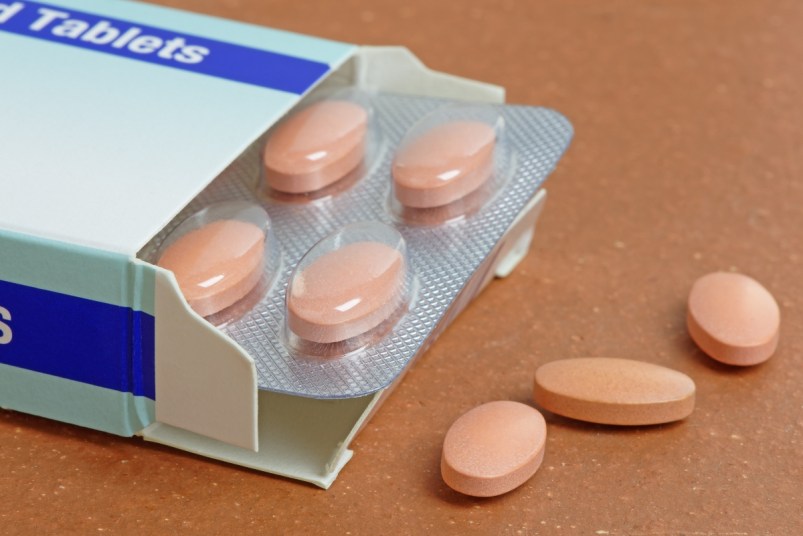Can Statins Reduce Your Risk of Severe COVID-19 and Long Covid?
Another study found statin users are more likely to get severe COVID.

Though COVID-19 doesn’t feel like the threat it was two years ago, the virus still exists — and for some, contracting it can have serious implications. If we’re infected, we double down on vitamins, sip tea and hot soup, and sleep ten hours a day in hopes of chasing it away quickly and preventing the scary side effects associated with long COVID. While vaccinations substantially reduced infection rates, COVID is still killing Americans at an alarming rate — more than 3,000 deaths in the last seven days alone. A new study, however, provides hope. Recent research found that statins — cholesterol-lowering drugs — may be linked to a reduced risk of severe COVID-19 and death. Here’s what we know so far.
Researchers observed the effects of statins on COVID-19.
The study was presented at the annual 2022 Anesthesiology meeting, an event hosted by the American Society of Anesthesiologists. Researchers analyzed medical records of 38,875 COVID-19 patients who had been hospitalized between January 1 and September 30, 2020. All patients had stayed at one of 185 hospitals in the US. 30 percent of them took statins to treat high cholesterol.
Patients who took statins were 37 percent less likely to die from COVID than patients who didn’t take statins. Also, statin users were a lot less likely to:
- Move to a hospice.
- Get sent to the intensive care unit (ICU).
- Develop blood clots.
In addition, patients on statins had shorter hospital stays and spent less time on a ventilator.
Why would statins help reduce COVID severity?
Why might statins have helped these patients? The study authors theorize that statins have an anti-inflammatory effect on the body, which could have prevented a major inflammatory response. “While there is no ‘magic bullet’ to help patients who are very ill with COVID-19, statins decrease inflammation, which may help reduce the severity of the disease,” said Ettore Crimi, MD, MBA, lead author of the study, in a press release. “Results of our study clearly showed regular statin use is associated with reduced risk of death and improved outcomes in hospitalized COVID-19 patients.
“This research illustrates the importance of evaluating medications that could be repurposed to help patients in ways other than their intended use,” Dr. Crimi continued. “Our results suggest statins could be an additional cost-effective solution against COVID-19 disease severity and should be studied further.”
Why is it important to take this news with a grain of salt?
The study was preliminary and has not yet been published in a scientific journal. It also has yet to undergo a peer review, a process that assesses the validity and quality of a study. In addition, it was observational — meaning the authors simply observed, and did nothing to affect the outcome. As a result, they could not control factors that may have had an influence on the patient’s COVID-19 severity. For instance, patients’ income level, proximity to air pollution, smoking status, age, sex, and medical conditions can all effect the body’s response to COVID. Finally, and perhaps most importantly, the research is from 2020 — before COVID vaccinations were available.
Some other studies support the theory that statins improve COVID outcomes, including a scientific paper from 2021 which suggests that statins prevent COVID from infecting body cells. However, a 2021 study conducted by John Hopkins Medicine found a very different outcome. In an investigation of 4,447 patients hospitalized between March 1, 2020, and June 30, 2020 (574 of whom took statins), statin use was linked to a 18 percent higher risk of severe COVID. Why? The study authors theorized that statins may lower a cell’s resistance to infection. However, they agreed that other factors were likely at play; for example, a statin user is more likely to have diabetes or high blood pressure — two factors that increase severe COVID risk.
What’s the bottom line?
These mixed results don’t mean that the 2022 Anesthesiology study has no merit — but they do suggest that we shouldn’t rely on statins to help a COVID infection. The best way to prevent severe COVID is to get your vaccine and booster shots. Don’t start statins in an attempt to reduce your risk of severe COVID-19, but if you are on statins and contract COVID, keep taking your prescribed medications.
















